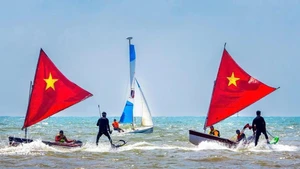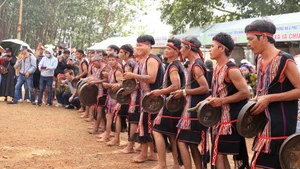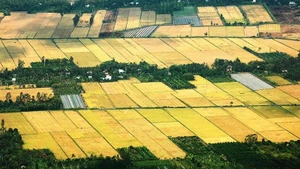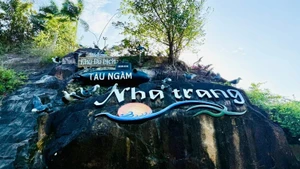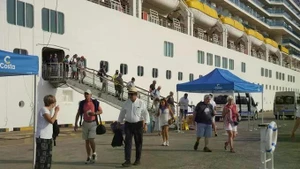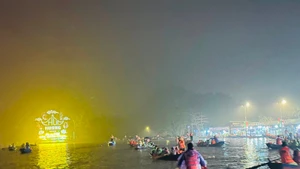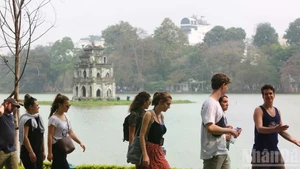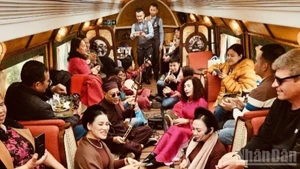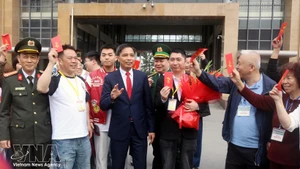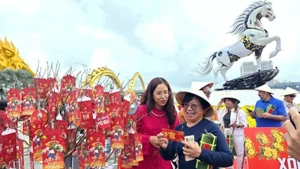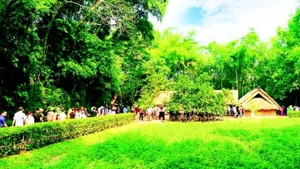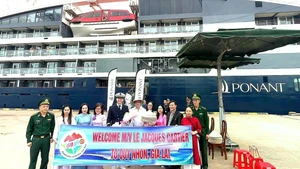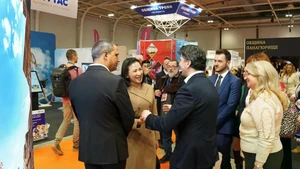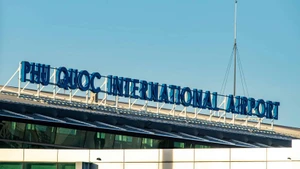Knowing how to take advantage of strengths and have appropriate strategies to attract this potential market, will help Vietnam's tourism grow strongly in the coming time.
Data from the Vietnam National Tourism Administration shows that before the COVID-19 epidemic, the number of Indian visitors to Vietnam only reached 169,000, in 2019. However, by 2023, this number will be 392,000, an increase of 231% compared to 2019.
In the first six months of 2024 alone, our country has welcomed 231,000 Indian visitors, an increase of 164% over the same period in 2023.
India has become one of the 10 largest sources of tourism, which confirms that Vietnam is a destination receiving a strong tourism wave of Indians.
The report titled “Travel Trends 2024: Breaking Boundaries” by Mastercard's Economics Institute, affirms that outbound Indian travel to Vietnam, in the first three months of 2024 soared by 248 per cent compared to 2019 levels.
The Economic Times estimates that by 2024, Indians are expected to spend more than 42 billion USD annually on outbound travel.
The World Travel and Tourism Council (WTTC) identifies India as a large, potential outbound tourism market. The market will reach nearly 50 million visitors, with an estimated revenue of about 100 billion USD by 2027. These numbers once again demonstrate the ability of the Indian tourist market to "lay golden eggs".
Experts say that Vietnam has all the strengths to attract more of this tourist stream. The distance between Vietnam and India is not too far. Recently, more direct flights connecting these two countries have been operated, so it is very convenient to travel. It takes about 4-5 hours to fly from India to Vietnam.
In addition, Vietnam has competitive service prices, which are 10-15 per cent cheaper than those in other countries in the region. Moreover, for many Indians, Vietnam is still a new destination with diverse culture, cuisine, and rich natural resources, which inspire them to explore.
This helps explain why the number of Indian visitors to Vietnam has recently increased sharply, especially in places with rich tourism resources and high-quality infrastructure, such as Da Nang, Phu Quoc, Ha Long, Hanoi, and Ho Chi Minh City.
Vietnam’s tourism industry has focused on promoting Vietnamese tourism to the Indian market.
Notably, Vietnam Airlines together with its partners of Vietravel, Vingroup, Sun Group and Indian travel agencies, held an event to promote Vietnam tourism in New Delhi. They organised a series of events during the launch of the Vietnam Tourism Information Centre in India, creating a bridge to effectively exploit the world's most populous market.
According to experts, besides attracting Indian customers, an important issue is to develop services and products to satisfy demanding tourists.
Nguyen Quang Vinh from the Tourism Development Research Institute said, Indian tourists often travel with families or groups of friends and rarely travel alone. They like shopping, outdoor activities, and visiting museums and cultural and historical relics.
Vinh, who led a study on Indian tourists to Vietnam, said that Indian tourists prefer beautiful resorts and parties. They often choose to use services at the above-average level. They carefully plan their trips and search for relevant information online via portals and social networks.
So, digital promotion activities are effective in approaching this tourist segment, Vinh said.
Associate Professor, Dr. Pham Hong Long, head of the Department of Tourism Studies at the University of Social Sciences and Humanities (Vietnam National University - Hanoi) said, that although the number of Indian tourists to Vietnam is increasing, there are no specific and complete statistics on human resources serving Indian tourists.
It’s necessary to train and improve the knowledge and skills of staff who serve Indian customers, he said.
Tourism research expert Nguyen Van Gia said, that travel agencies need to coordinate closely with Indian partners to clarify guests' requirements regarding food and drink.
Gia said, that State agencies need to support businesses in human resources training, particularly for tour guides, restaurant and hotel staff and other service providers.
Vietnam should also cooperate with Indian partners in food processing and the supply of spices and raw materials to serve the dietary needs of Hindus and Muslims.


